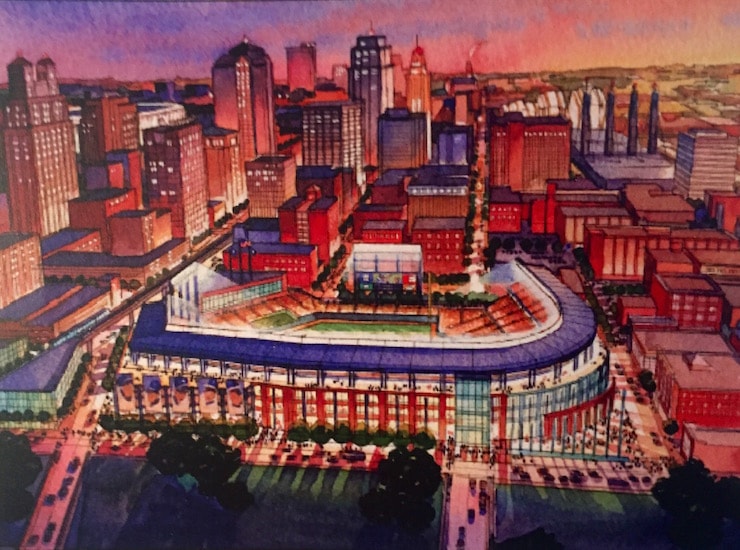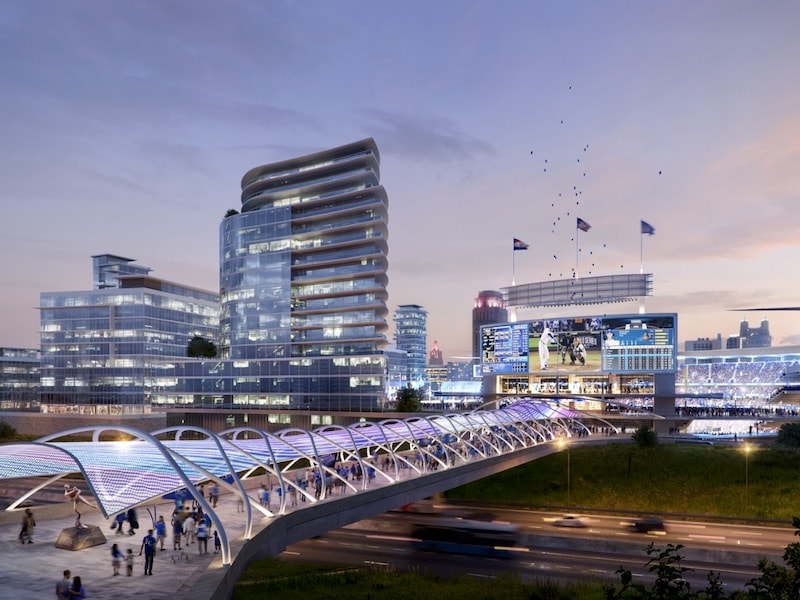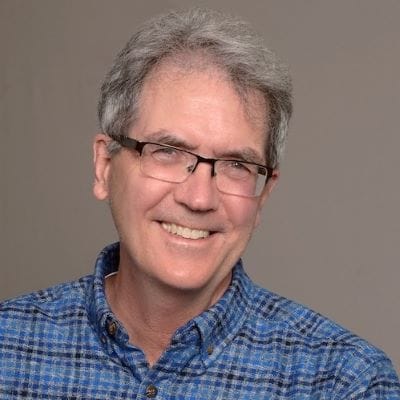With Longtime Goal Close, Downtown Council Goes Quiet on Ballpark

Published September 11th, 2023 at 11:30 AM
By Kevin Collison
The biggest and loudest civic cheerleader for a downtown ballpark for almost 20 years has gone quiet as its goal becomes achingly close, choosing instead to work behind the scenes.
The Downtown Council, downtown’s premier private advocate, has embraced more low-profile tactics including enlisting corporate leaders to write letters of support and furnishing whatever information the Royals, Jackson County and the city have requested.
“A lot of ideas have been shared and a lot of information has been exchanged so they’re doing a very deliberative process of analyzing the downtown process,” Bill Dietrich, president and CEO, told members of the Downtown Council board last week.
“I think it’s a great proposal. I feel very confident we’ll be successful, but there’s a lot of work to be done.”
The Downtown Council has been pushing for a ballpark since greater downtown began its current revival effort 20 years ago.
In 2005, when the possibility of a downtown ballpark first arose at the end of the team’s last lease, the Downtown Council hired the Barrett Sport Group to prepare a study in an effort to persuade Royals late owner David Glass to make the move.

A rendering of how a potential downtown ballpark would have looked at the North Loop site was part of a 2005 study by Barrett Sports Group.
That study estimated the cost of a 40,000-seat ballpark that would have opened in 2009 at $357 million. It identified five potential sites–including the East Village–and projected greater week day attendance for the Royals and other economic benefits.
Tom McDonnell, then the influential chief executive of DST Systems, and other downtown business leaders even began soliciting support for corporate suites at a potential downtown ballpark.
But it all fell apart when Glass abruptly pulled the rug out from under their effort and decided to remain at the Truman Sports Complex.
In 2017, as the current lease began to tick down, the Downtown Council co-funded a $120,000 study with the city looking at potential ballpark locations and preparing a pitch to the Royals to come downtown.
In January 2020, the organization showcased Paul Goldberger, a Pulitzer Prize-winning architectural critic and author of “Ballpark: Baseball in the American City” as its keynote speaker for its annual luncheon.
Two years later, Brooks Sherman, senior v.p. of the Royals, and Mark Donovan, president of the Chiefs, made news as the keynote speakers at the Downtown Council’s luncheon in 2022.
They made it clear the two were planning to end their 50-year connection at the Truman Sports Complex.

John Sherman at a press conference in late June where he expressed frustration about the pace of negotiations for a new ballpark.
Now, with the Royals owner John Sherman committed to relocating the ballpark to either downtown Kansas City or North Kansas City, the Downtown Council is playing an end game that’s far less public.
Dietrich said his organization has been “navigating a very complex process” as its sought to provide public officials and the Royals with all the information they needed in their decision making process.
Up until a couple months ago, many people believed the 29-acre East Village site appeared to have a lock on the ballpark location. Then North Kansas City, with the help of the wealthy Merriman family of Financial Holding Corp. offered a strong, 90-acre alternative.
“Clay County leadership has been implementing a very proactive public relations campaign,” Dietrich noted.
“We’ve seen flyers in the mail, or heard it on the radio…they’re really looking at public relations getting their message out.”
In contrast, Jackson County has taken a more “deliberative” approach to bringing the Royals downtown, he observed.
“We want to ensure that information is being shared and part of the deliberative process in their decision making,” Dietrich said.

A rendering of how a potential ballpark development in North Kansas City could look, downtown KC is visible on the horizon. (Rendering by Populous)
One vivid example of the Downtown Council’s option to work behind the scenes rather than publicly occurred last month when City Manager Brian Platt set off alarm bells in an interview with CityScene KC.
Platt said downtown Kansas City businesses would benefit either way should the Royals choose the East Village or go across the river to North Kansas City. His laissez faire comment prompted the Downtown Council to write a letter to Platt.
The City Council quickly adopted a resolution placing it firmly behind a downtown location.
As part of its lobbying strategy, the Downtown Council has been leaning hard on the Royals stated intention that a new ballpark would be of great economic benefit to underserved communities.
“Wherever we play baseball, we will seek out efforts that result in…an enhanced quality of life for the citizens of our region, with emphasis on historically under-represented members of our community,” Sherman wrote in a letter last November.
Dietrich said his group is taking Sherman at his word.

A skywalk above 71 Highway could potentially link the East Village ballpark district to additional development in the Paseo West area. (Rendering by Populous)
“Mr. Sherman is very sincere and very committed to a site that has the maximum community benefit for all of our citizens,” he said. “And that’s where we bring a lot of conversation.
“We think the downtown site has such a wide range of community benefits at that location that would help with so many issues we work with daily.”
Mike Klamm, the Downtown Council board chairman, said the Royals decision to include a pedestrian bridge over 71 Highway as part of its East Village concept could bring major economic benefits to the area to the east called Paseo West.
“The Downtown Council feels the East Village has much better attributes to achieve the stated goals particularly when you look at that pedestrian walkway over 71/29 that will connect Paseo West directly into that stadium,” he said.
“You imagine what will happen than across that highway with new housing and new retail. The connectivity to other communities.
“We’re doing everything we can to supply them with technical information on why downtown Kansas City has got in spades over North Kansas City.”


